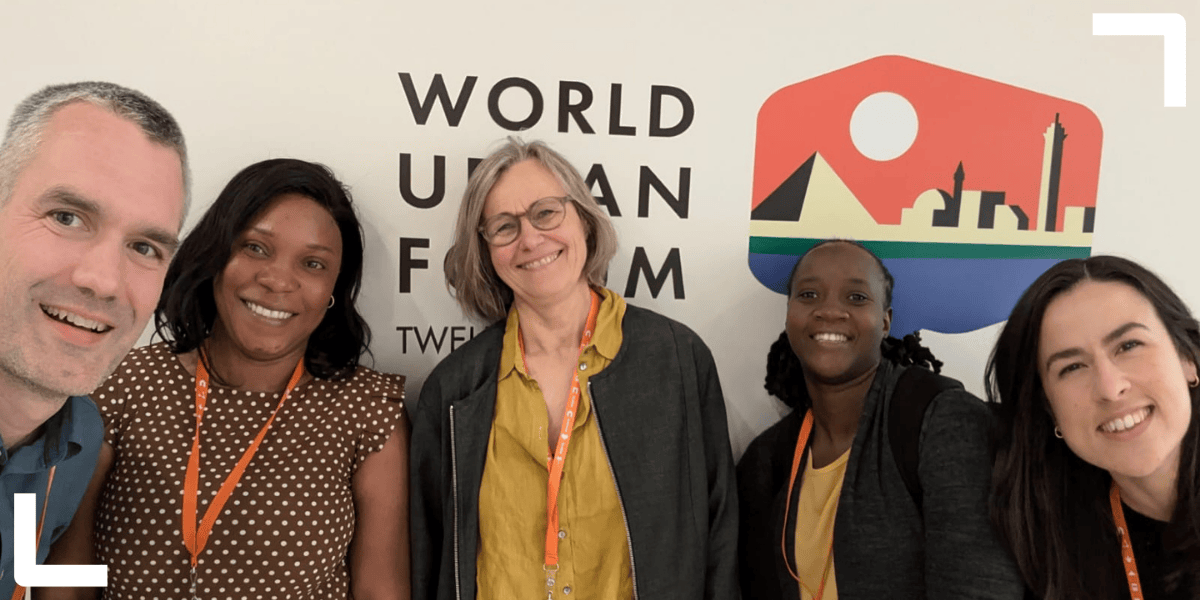By Chris Jordan, ACRC’s communications manager
The 12th World Urban Forum took place in Cairo last week – only the second time it has been held in Africa since its inception in Nairobi in 2002. A record 24,000 people attended from 182 countries – and it often felt like it (particularly while queueing for lunch)!
WUF (as it is universally known) came at the perfect time for us at ACRC. We are currently finalising the publication of all our foundation phase research on cities and domains, at the same time as scoping the action research projects that address key problems we highlighted in a number of locations.
Unlike some of our colleagues at SDI, who have attended every single WUF, it was my first time. So here are some of my reflections as a WUF newbie.
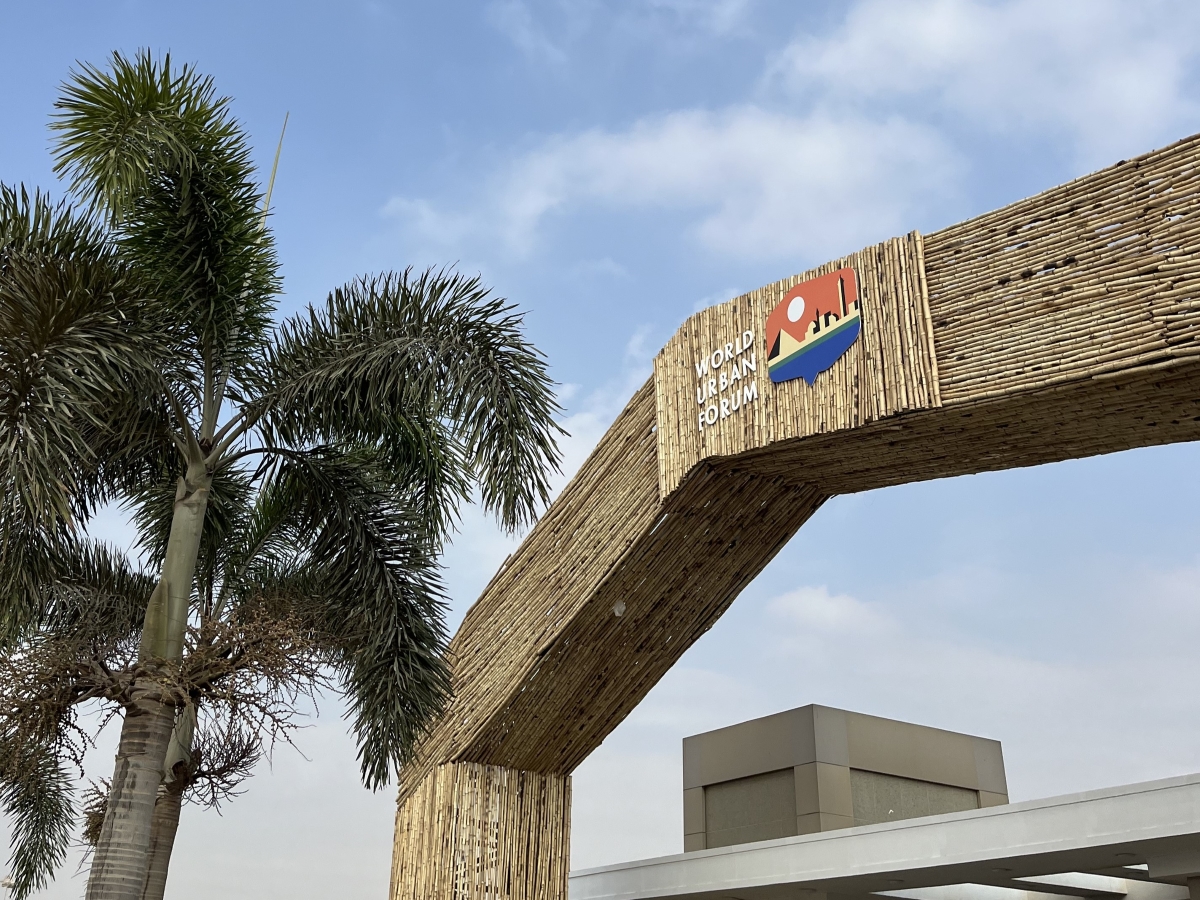
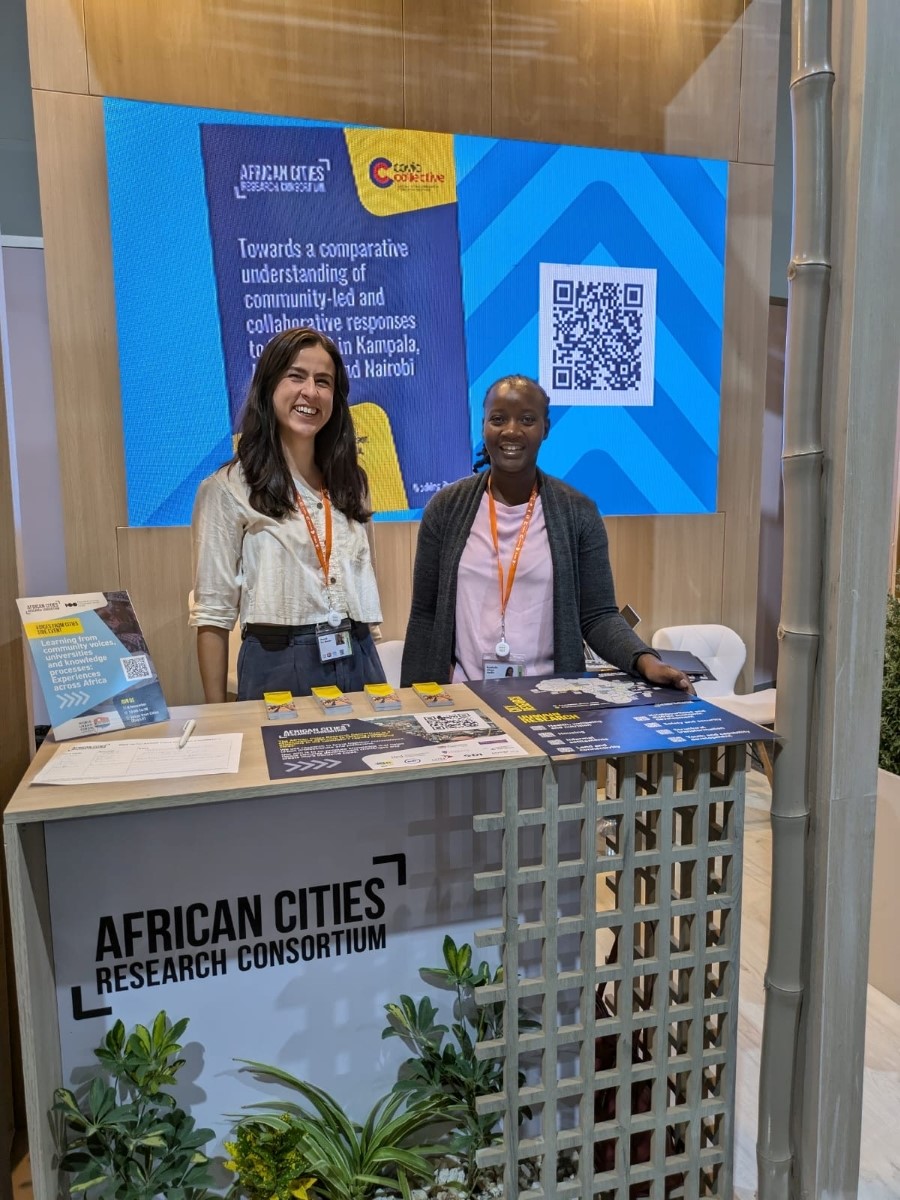
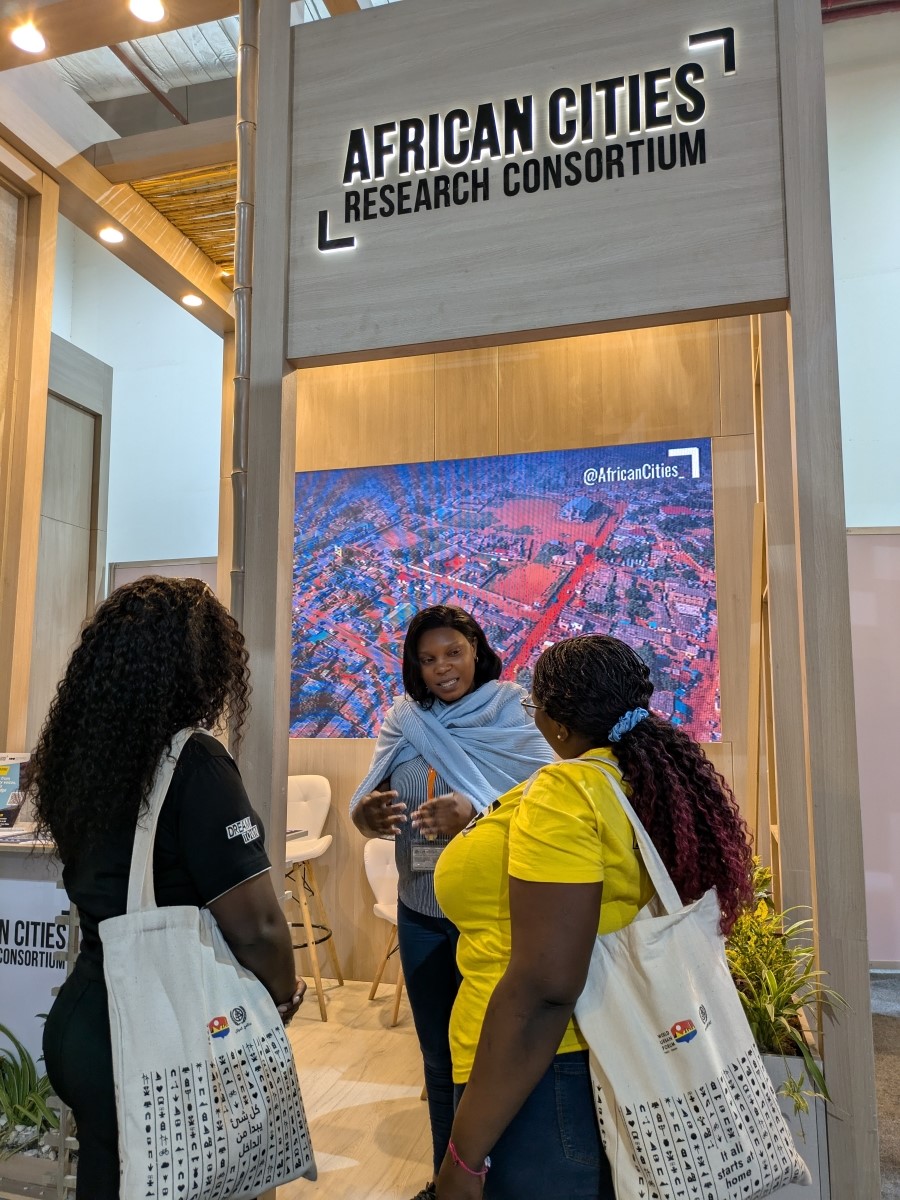
Urbanists are an extremely diverse bunch
Throughout the week, we ran an ACRC booth in the Urban Expo. The Expo took up two enormous conference “hangars”, featuring country booths, NGOs, universities, projects, campaigns, companies and more.
We talked to hundreds of people – and in stark contrast to the more development-focused crowd at other events, the diversity of the attendees really struck me. There were far more planners, architects, designers and engineers than I had anticipated. This gave a richness to the conversations and reminded me that the overall approach of ACRC – with its focus on the catalysing politics of urban change for the most marginalised communities – provides a really distinctive contribution.
We’re in the process of developing an online course, based on our foundation phase research findings and I’ve returned home with a positive bounce for its potential. ACRC really is adding something new to urban debates and thinking.
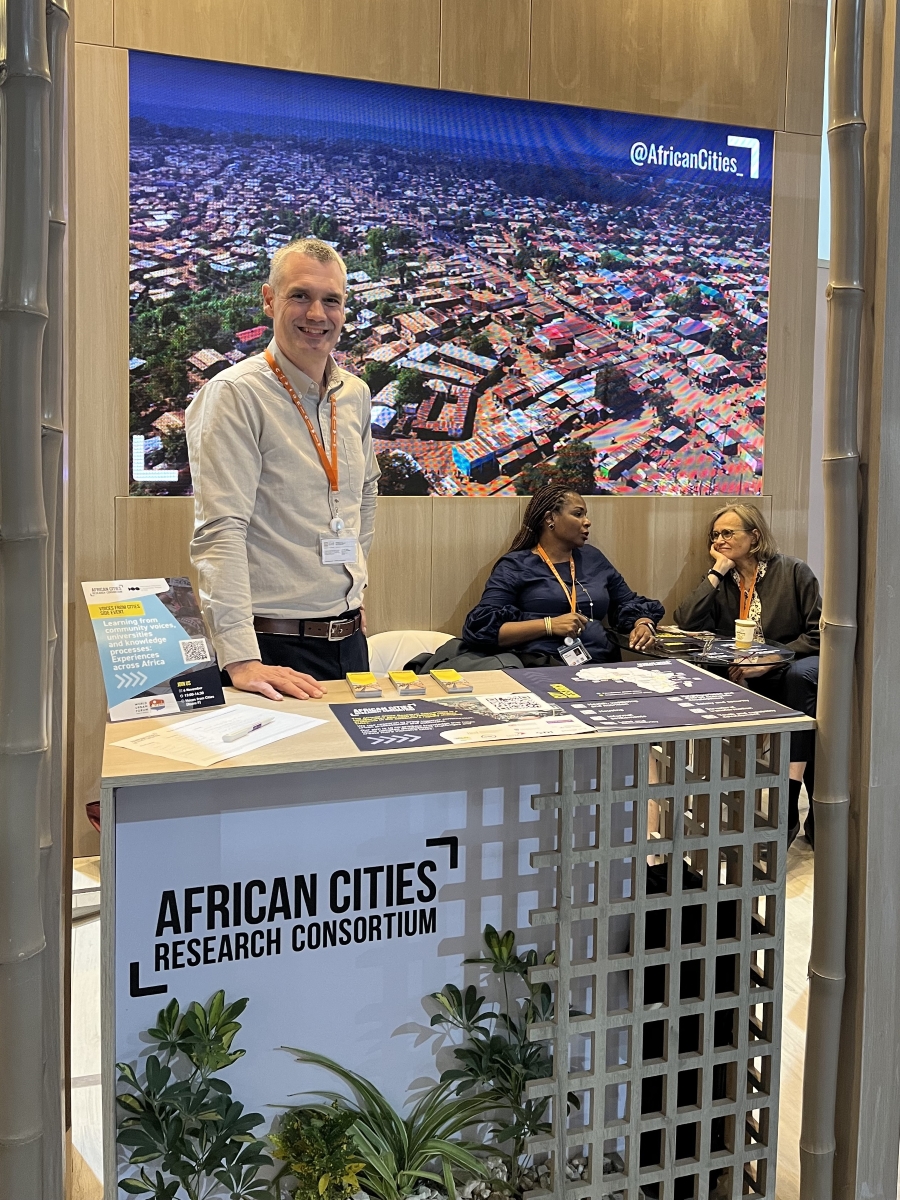
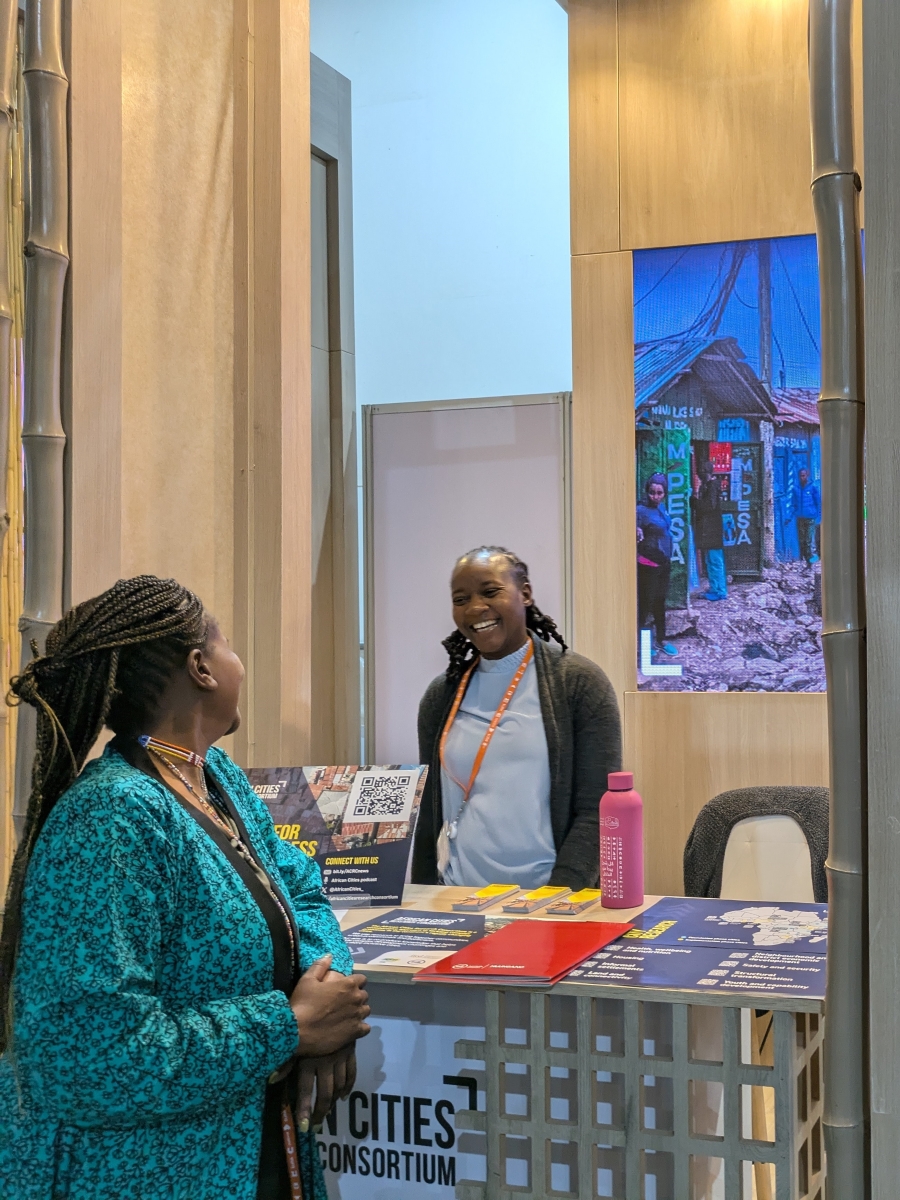
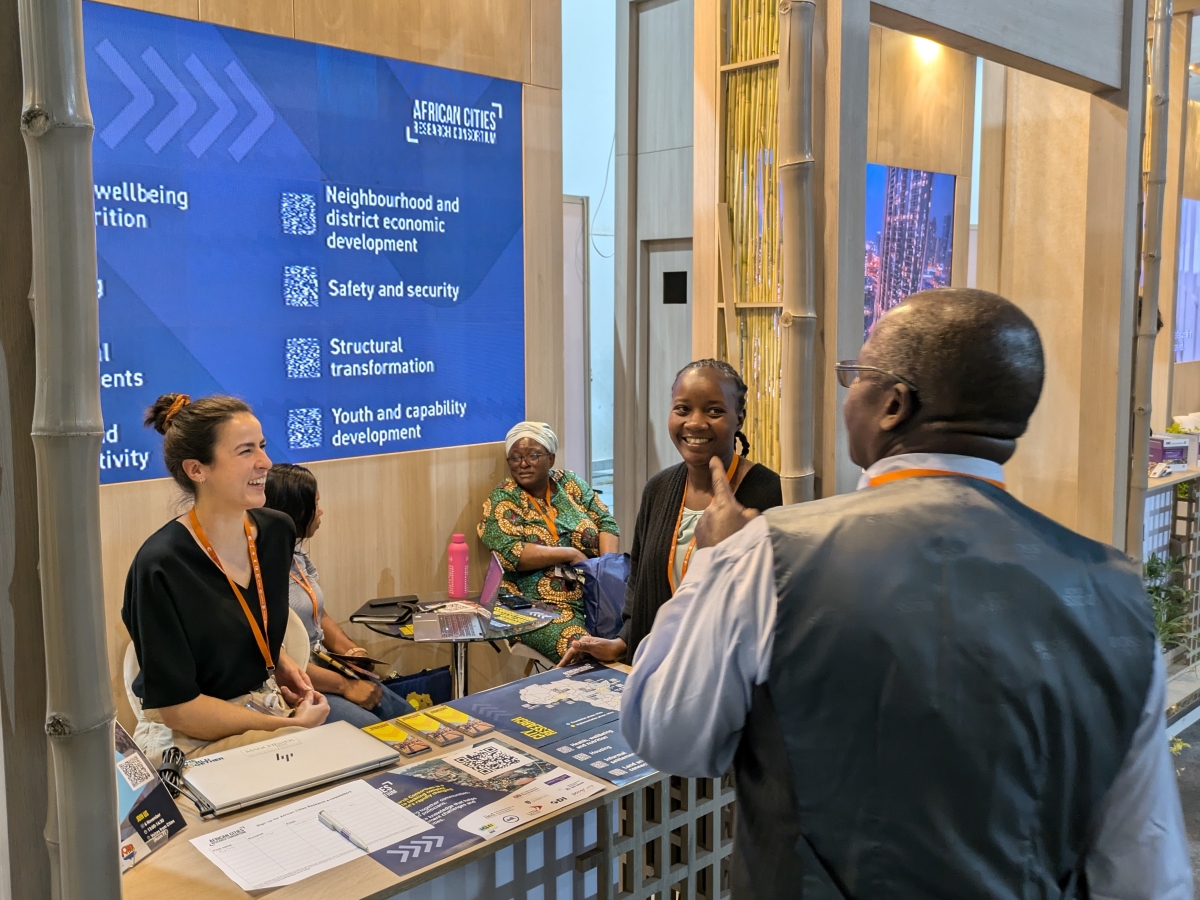
Community voices can’t be taken for granted
We hosted an official “voices from the city” side event with SDI and IUSD Cairo on “learning from community voices, universities and knowledge processes”. The speakers emphasised the importance of hearing directly from people living in cities, rather than relying solely on poor quality national data, particularly across African countries.
Sheila Muganyi, a community research leader from the Zimbabwe Homeless People’s Federation, outlined the effectiveness of SDI’s approach to mobilising communities, savings schemes and data to provide recognition and influence with city officials and politicians.
Sheila also highlighted the vital role of the Urban Informality Forum in Harare. Hosted by the University of Zimbabwe, it provides a platform for dialogue and debate between city officials, companies and community groups. The forum has helped all parties to move beyond previous deadlocks on issues of informality, and allows current issues (like the recent fire at Mbare market) to be meaningfully addressed from a range of perspectives.
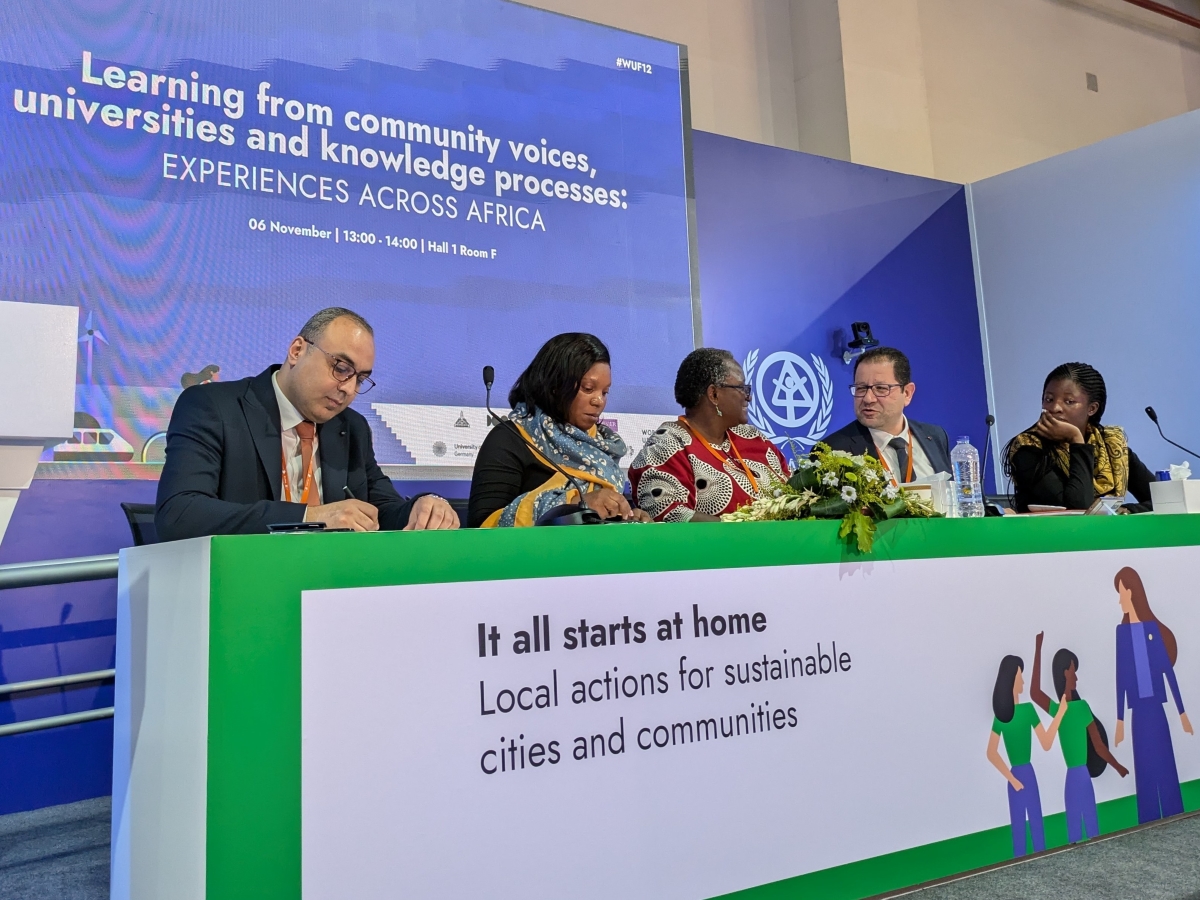
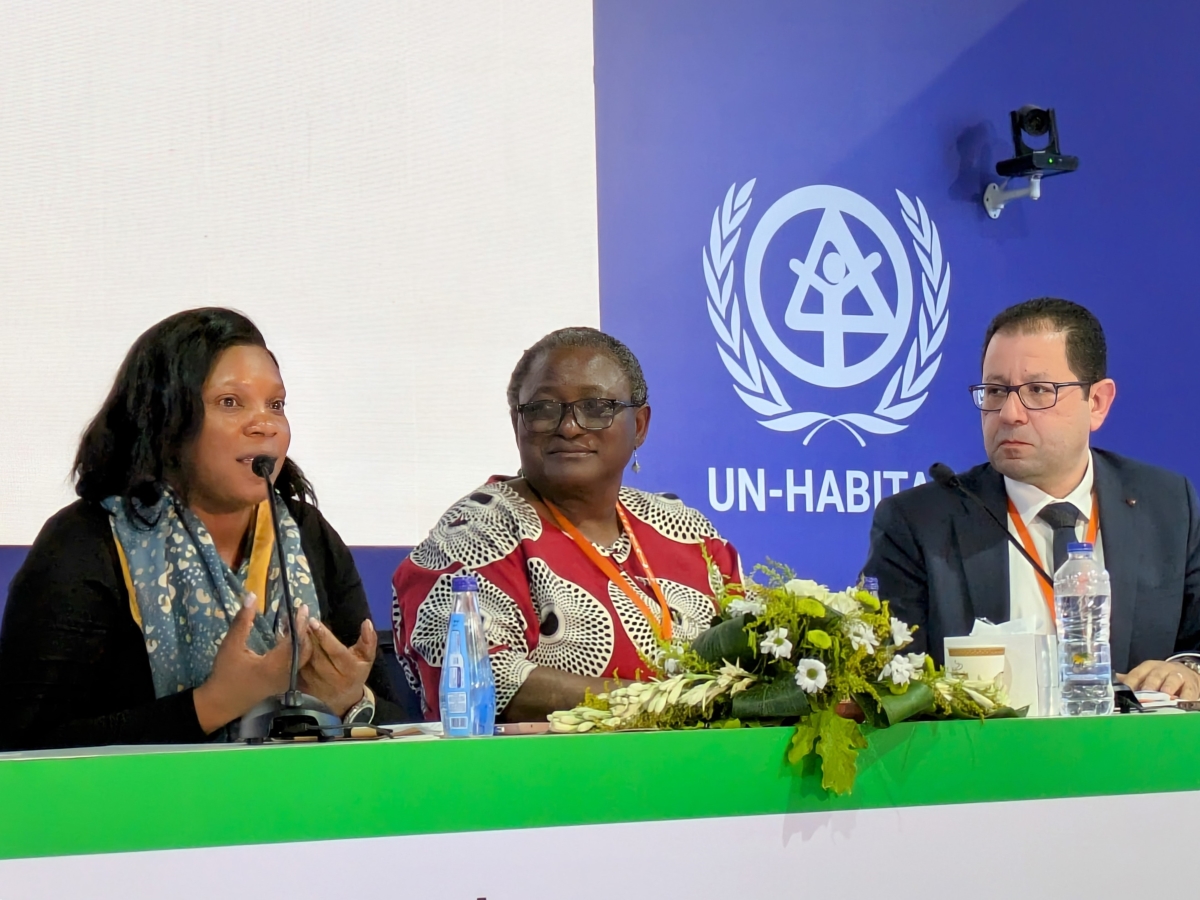
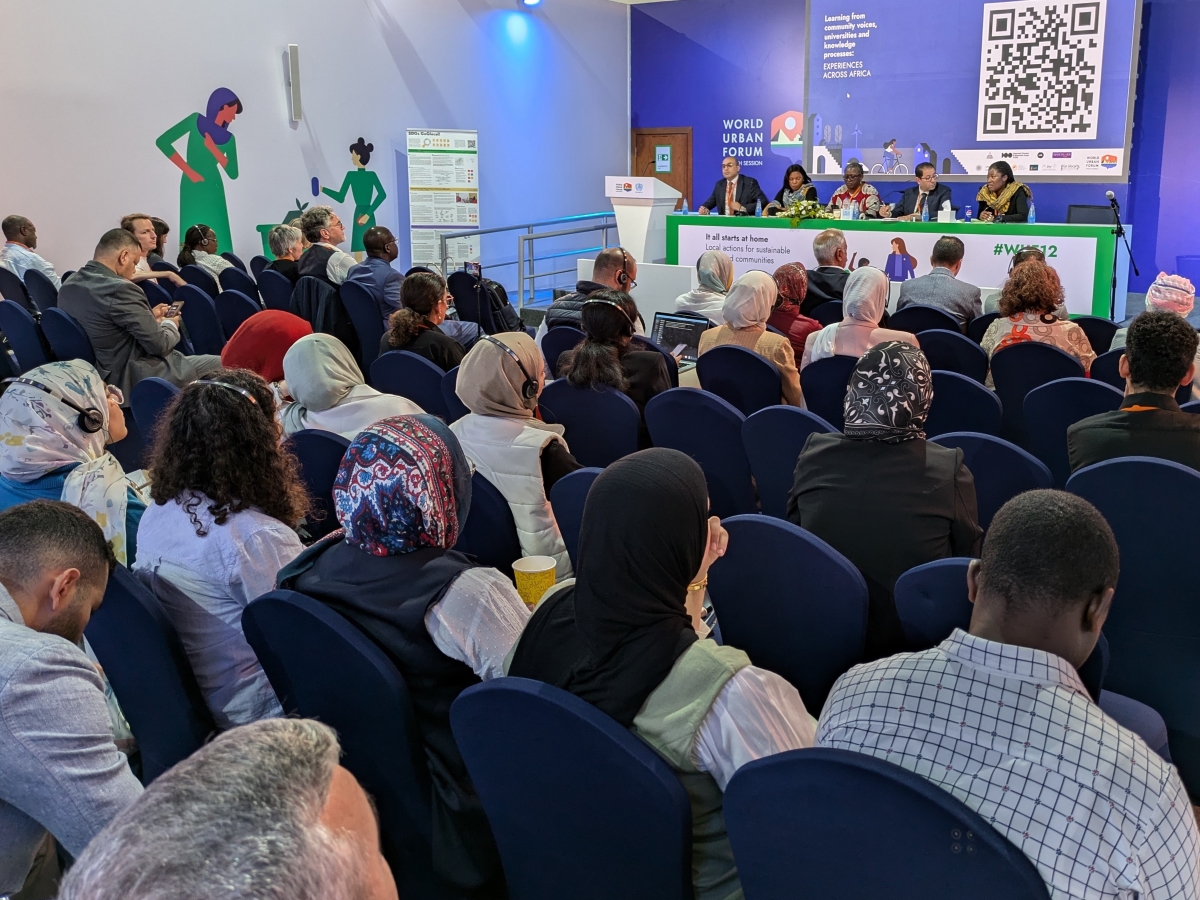
The scope and scale of the task means that reform coalitions are essential
As the final Cairo Call to Action emphasises,
“The magnitude and interconnected nature of urban development challenges and opportunities requires stronger collaboration for progress. Local action is more impactful when driven by coalitions that bring together communities, local and national governments, the private sector and civil society. Empowering local actors through these partnerships and coalitions is a powerful tool for addressing community-specific challenges while aligning with broader national and global goals.”
Given ACRC’s work to better understand and catalyse urban reform coalitions, it’s perhaps unsurprising that we heartily agree. However, there’s also a huge challenge to put this into practice, particularly at the scale required to create substantive change for people across urban areas in Africa – and further afield.
Many of these issues were discussed in a Habitat Village discussion session, facilitated by ACRC’s Diana Mitlin and Shuaib Lwasa on the penultimate day. The group highlighted the important role of regular coalition spaces (like the Urban Informality Forum in Harare) to help hold authorities accountable, in addition to generating mutual understanding. We debated the varied forms of coalitions – from informal groupings of individual reformers, to formal organisational structures – as well as highlighting the potentially negative effects of coalition structures being instrumentalised by funders.
In launching the new Hub for Housing Justice at WUF, our colleagues in IIED highlighted a vital issue that has been previously overlooked on the international urban agenda. As SDI’s Beth Chitekwe-Biti remarked at the launch, genuinely affordable housing is a universal issue – for both North and South. Manchester’s Social Housing Commission, which brings together community activists, researchers and members of the city council, may provide a template for others to follow.
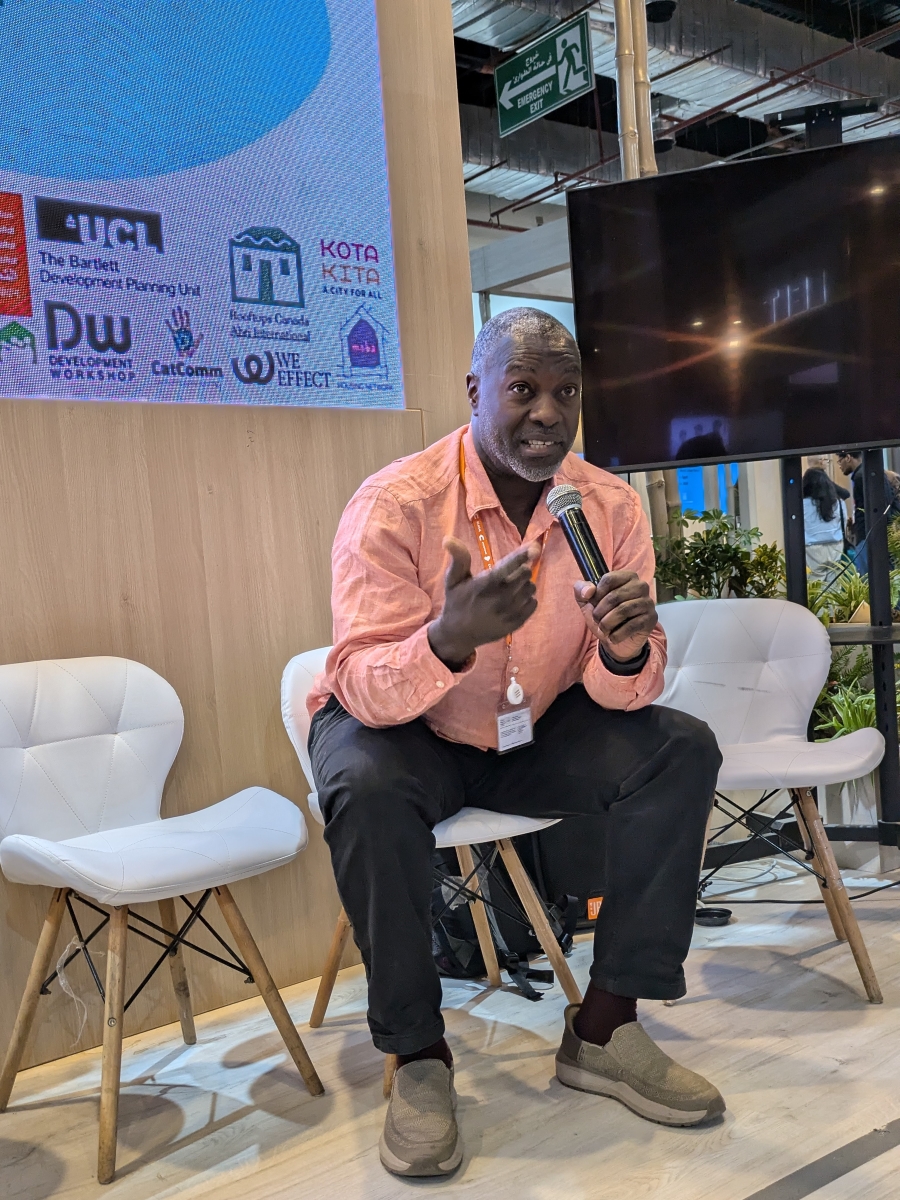
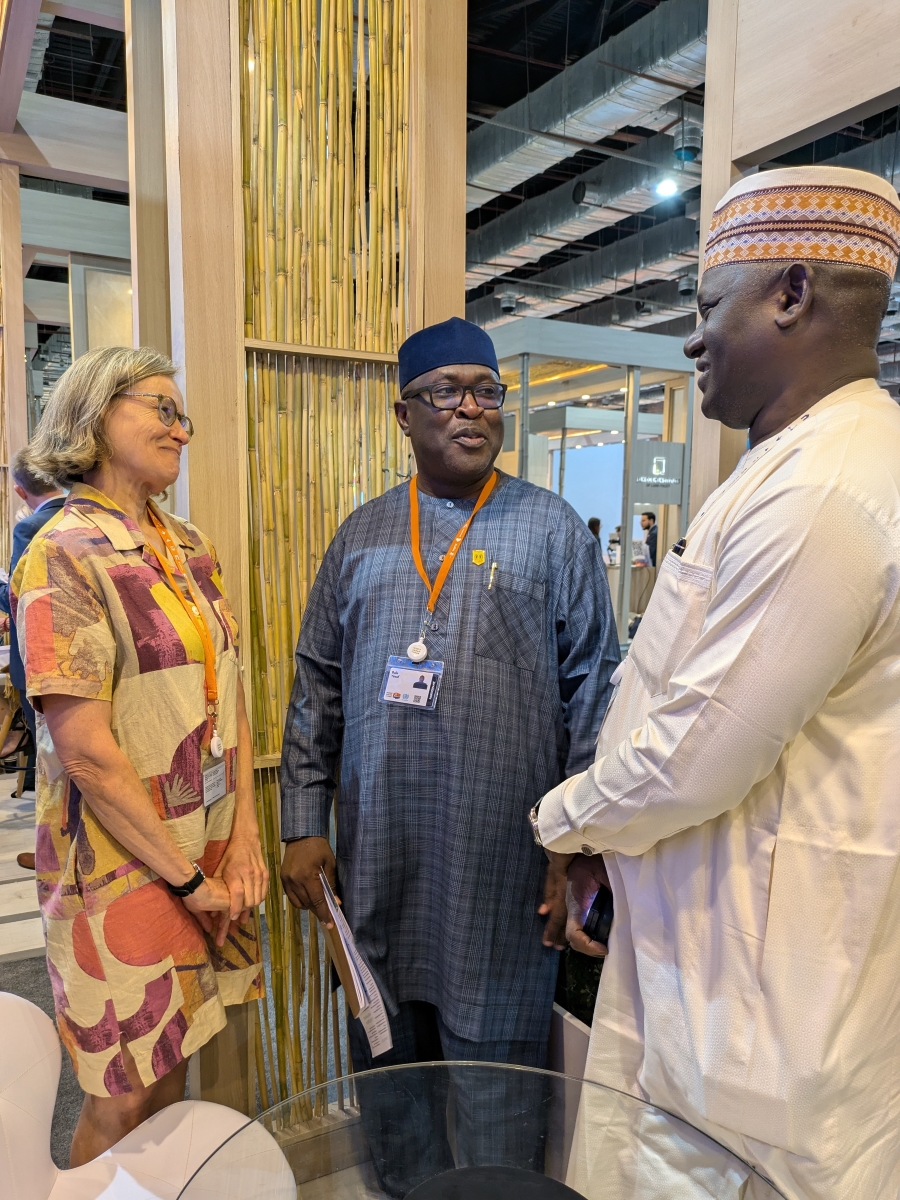
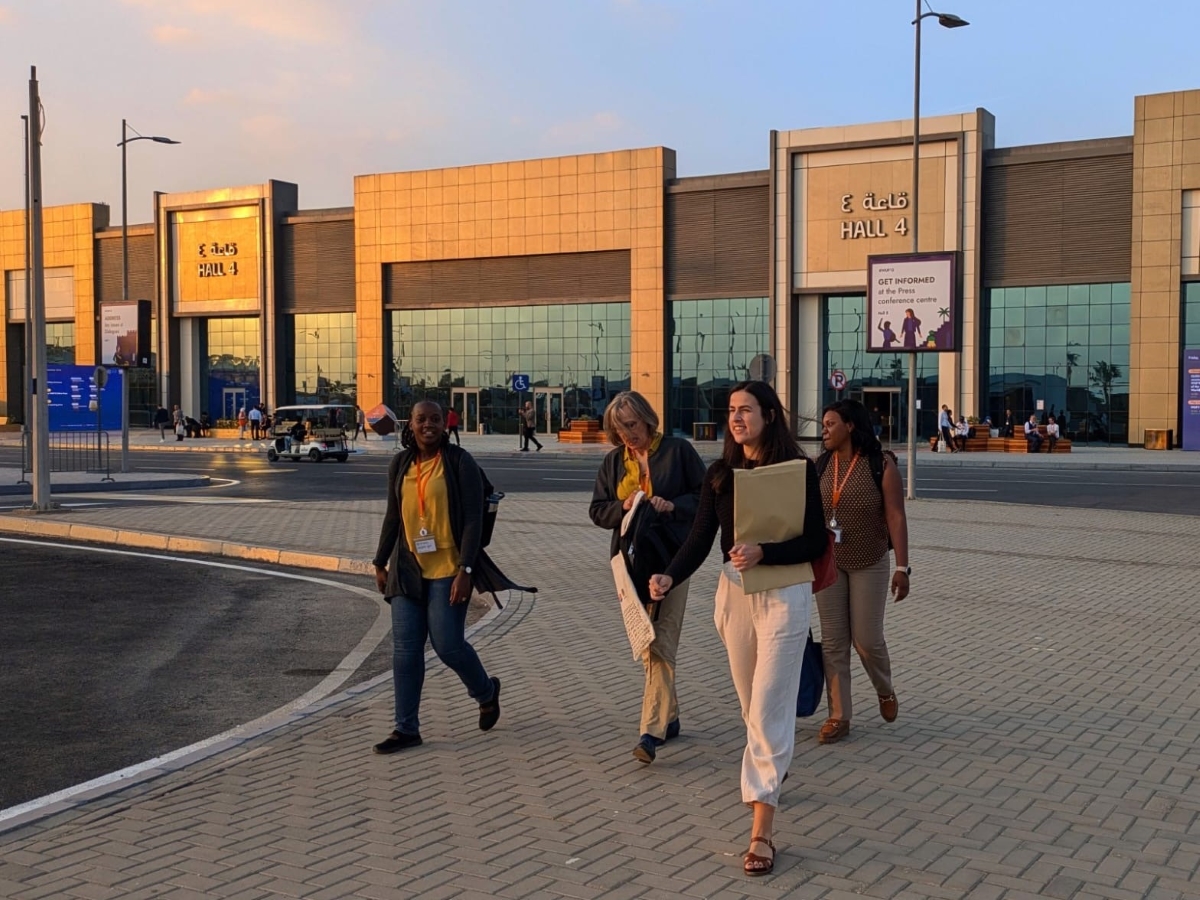
At the end of WUF, I managed to fit in a quick visit to the Giza pyramids, close to the centre of Cairo. Standing beneath the vast bulk and awesome height of the pyramids, constructed over 4,500 years ago, I felt that they lay down a silent challenge for us.
If an ancient civilisation could create such an enduring physical legacy, then it is surely not beyond our collective capabilities to create a radically better urban environment for all city dwellers – across Africa and beyond.
Photo credits: Chris Jordan and Hannah van Rooyen
Note: This article presents the views of the authors featured and does not necessarily represent the views of the African Cities Research Consortium as a whole.
The African Cities blog is licensed under Creative Commons Attribution-NonCommercial-NoDerivatives 4.0 International (CC BY-NC-ND 4.0), which means you are welcome to repost this content as long as you provide full credit and a link to this original post.

